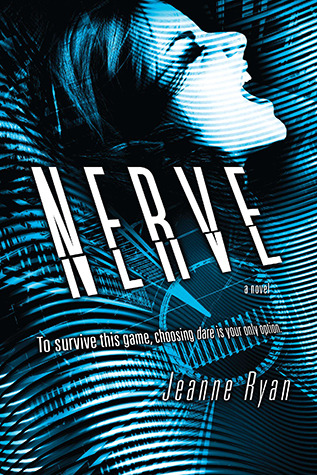Here’s the series, in order:
- Darkfever
- Bloodfever
- Faefever
- Dreamfever
- Shadowfever
These five officially complete my Cannonball (52 books in a year!) Yay! I had initially
signed up to do the half-cannonball (26 books) — a formerly avid reader, I hadn’t
really done a lot of reading for pleasure in the past few years, and I
was unsure how many books I’d be able to cover. I want to say: THANK YOU
Cannonball read, and THANK YOU
Pajiba, for giving me the motivation to
rediscover reading, one of my true loves in life. For the remainder of
this year, I won’t be writing any more reviews, because I’ll probably be
re-reading some of my favorite new books that I discovered this year.
I read these based on
Malin’s reviews. I’m fairly new to urban
fantasy and paranormal romance, being somewhat averse to cheese. For
some reason, despite that
Darkfever cover, Malin’s review convinced me to give these a try, and I’m really glad I did.
The series is set in modern-day Dublin, which due to its ancient
Gaelic roots in fae magic, is kind of a “ground zero” for interactions
between humans and the Fae. The heroine, MacKayla Lane, travels to
Dublin with the initially simplistic idea of lighting a fire under the
ass of the Dublin police, who had been previously unable to solve her
sister Alina’s murder. MacKayla quickly learns that there is a lot more
to Alina’s murder than she previously suspected. For one thing, she
discovers that she is a
sidhe-seer, or a human that can see the
Fae, whereas other humans can only see the glamours that the Fae
project in order to look human and blend in. Mac finds that she shared
this ability with her late sister, and it was these very connections
that got Alina killed.
Grappling with these revelations, Mac falls into an uneasy alliance
with Jerico Barrons, the ruthless, enigmatic, and powerful owner of a
Dublin bookstore. Together, they seek the
Sinsar Dubh, a text
about which Mac knows little to nothing, other than that the final
voicemail she received from Alina implored her to locate it. Barrons has
his own reasons for seeking the book, and though his motives are
unclear, it is plain to Mac that she needs his help and protection if
she is going to pursue her sister’s dying request.
Several other players are introduced: V’Lane, a Fae prince of the Light (Seelie) Court; Rowena, leader of a coven of other
sidhe-seers; the Keltar, a clan of Druids; Dani, another
sidhe-seer
who grows a sisterly bond with Mac; Darroc, Alina’s former lover, and
so on. With every book in the series, Mac encounters situations that
force her to profoundly change. In
Darkfever, she’s bubbly,
naive, flippant, and astutely described by Barrons as a lamb to
slaughter in the world of the Fae. With his help and her innate
intelligence, she’s able to adapt, becoming quite the compelling and
kick-ass heroine in the process. If you’re annoyed by her early on —
DON’T WORRY. She gets so much better, and you’ll almost certainly end up
liking and admiring her even by the end of the second book.
I’m leaving out a lot of detail, particularly regarding the later
books, because I don’t want to reveal too much and spoil anything. I
would be remiss if I didn’t give lip service to the dynamic between Mac
and Barrons, which starts off similarly to how you would expect a lion
to interact with a hyperactive chihuahua (Mac is the chihuahua.)
Initially, it seems that the only reason Barrons even tolerates her is
because she has a particular gift that is uniquely and massively helpful
in finding the
Sinsar Dubh. These two have some pretty steamy
sexual tension throughout the series that is pretty wicked hot. Barrons
himself, I can barely describe. Malin may have said it best in her
review — he’s the ultimate alpha and a quintessential bastard of
literature, which in a romance or romance-adjacent novel is pretty much
the pinnacle of sexiness. The combination of their explosive chemistry
and the compelling story made these all-nighters for me — I couldn’t put
them down. I guess this kind of stuff is more up my alley than I
thought it was, because the series became an instant Cannonball favorite
and I re-read several parts of every book before returning them to the
library, then promptly went and bought them on Amazon. Highly
recommended!




